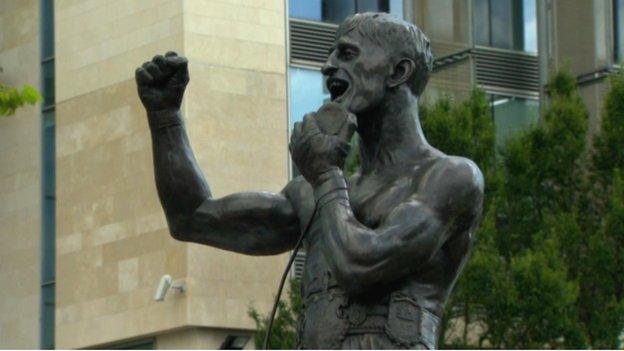Ma Copley: How a woman came to be Belfast's biggest boxing promoter
- Published
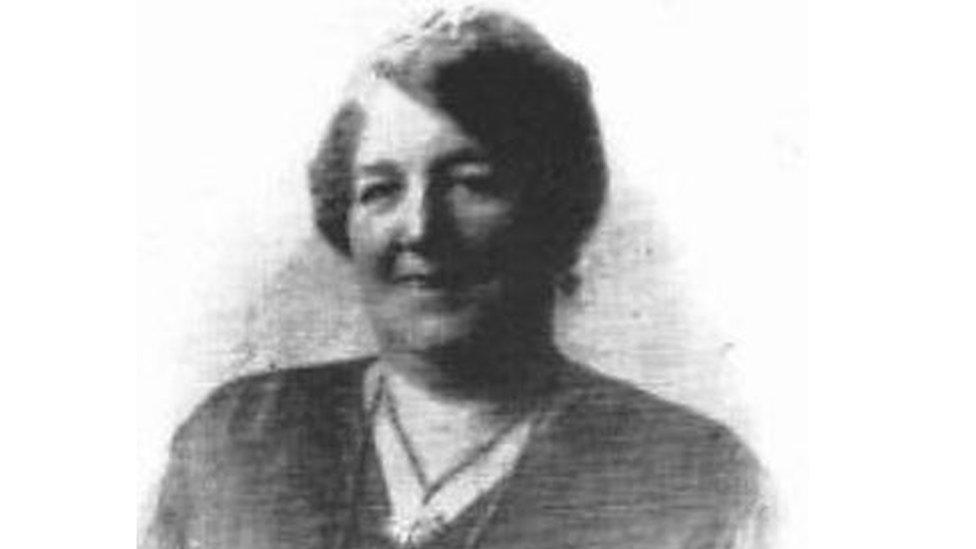
Boxing promoters are generally thought of as being fast-talking alpha males, but in Belfast in the 1930s one celebrated promoter couldn't have been further removed from this stereotype.
Long before there was Don King, Barney Eastwood and Eddie Hearn, Clara Copley - affectionately known as Ma - was a pioneer in the fight business, giving many young boxers their start and providing them with much needed income during a period of financial hardship.
For her granddaughter, Doreen Devenney, Ma Copley's achievements in a male-dominated field remains a source of great pride.
"People still talk about my grandmother. I grew up living in the caravan beside her and have many happy memories of being with her and watching the boxing.
"She had a great personality, but she didn't let people walk over her."
Ma Copley was born in Yorkshire, England in 1866. She became part of her family's travelling amusement business, living in caravans while managing attractions including a circus, funfair and waxworks.
She came to Belfast in the 1920s and was still involved in the family business, with many children coming to their funfair based in Belfast's Chapel Fields.
But in the 1930s, Ma decided to focus on the city's thriving boxing trade - it was a move that would seal her legacy.
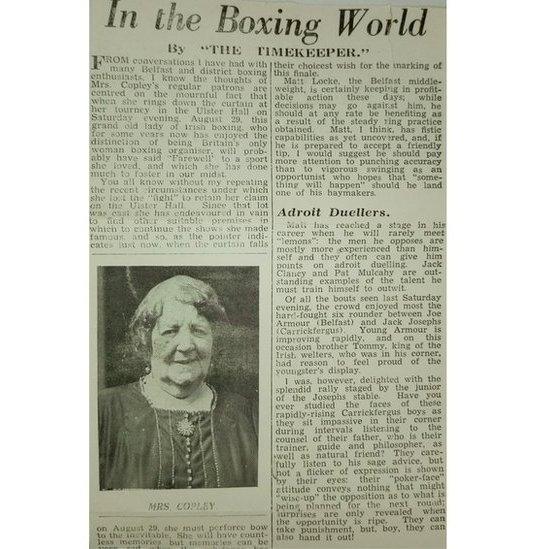
Ma Copley's success as a boxing promoter was headline news
She used vacant ground around Alfred Street and Adelaide Street, opposite St Malachy's Church, in Chapel Fields to begin hosting boxing shows in 1934, which took place three times a week on Monday, Wednesday and Saturday evenings.
The bouts were held outside in the summer and in a large marquee, which became known as "Ma's tent", during the rest of the year.
The venue hosted more than 600 shows over the years. They weren't expensive to attend and supporters came from all sections of the community in Belfast, with a predominantly working class crowd creating a tremendous atmosphere.
The entertainment wasn't confined to the ring with the crowds often warmed up by bizarre acts, which ranged from goldfish-swallowers to lion-wrestlers.
'Be tough and love a punch-up'
Ma's boxers were largely inexperienced, with many of them starting their careers on the Chapel Fields.
They normally received five shillings as a fight purse (though occasionally some got paid more), which provided a lifeline for many young men.
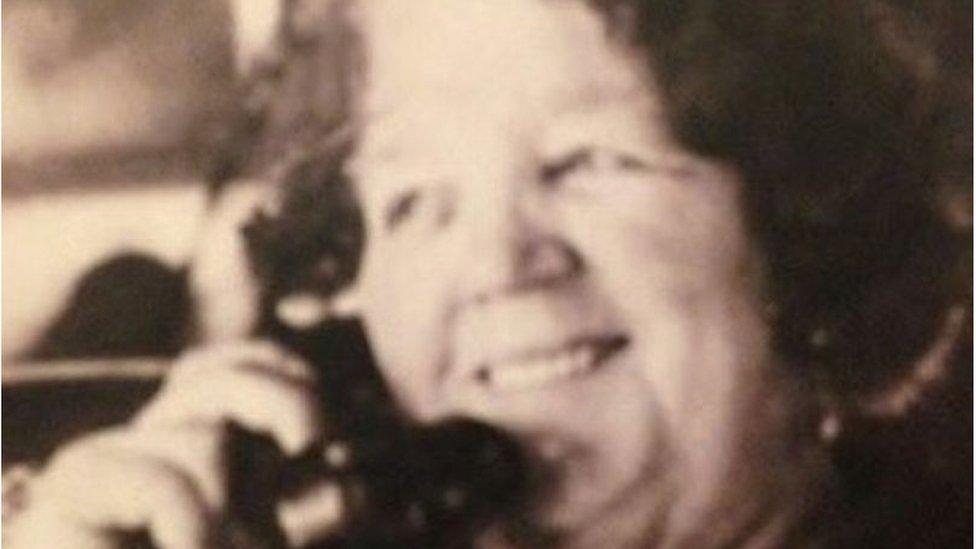
Ma Copley provided a lifeline for many fighters during a time of financial hardship in Belfast
In return, they were expected to put on a good show. The fighters had to be tough, particularly as they would at times face an opponent who was significantly heavier.
One of the boxers, Dan Canning, later reflected on what it was like at Chapel Fields: "Anybody who fought for Ma had to be as tough as boot leather, and love a good punch-up."
Most of the boxers came from local clubs, but at times fighters were brought over from other parts of the UK.
Ma was an imposing figure, who carried a stick and took no nonsense from any of the men, but she was also known to slip a little cash to young boxers down on their luck.
Some of Ireland's best boxers, including Rinty Monaghan, who would go on to become world flyweight champion, fought on her shows early in their careers.
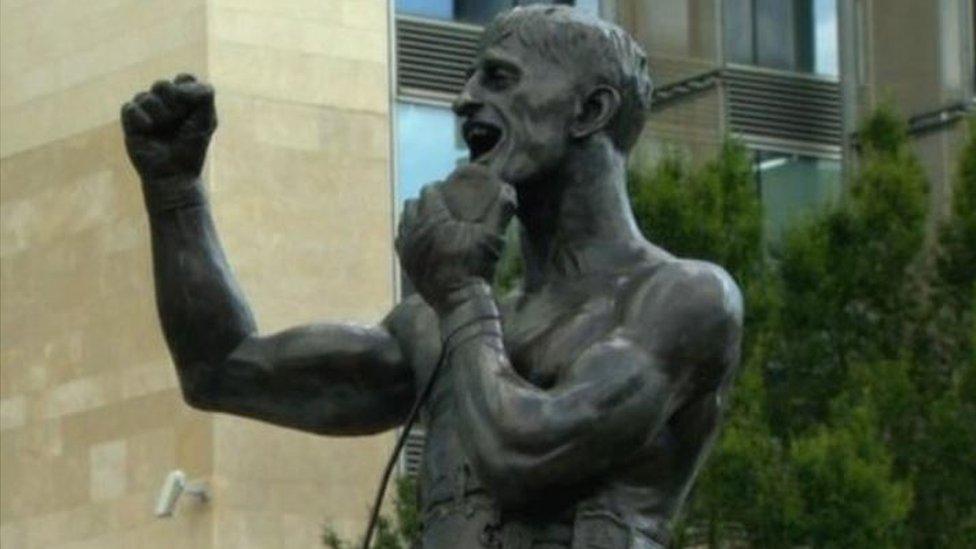
A statue of Rinty Monaghan was unveiled in Belfast in 2015
There were also a vast array of colourful characters among the featured fighters, many with memorable nicknames such as Machine-Gun Mackenzie, Buckets McGahey and The Birdman Cecil Creighton (who ran a pet shop).
McGahey was involved in a particularly memorable bill, later when the shows moved to the Ulster Hall, in which he won and lost separate fights to the same opponent on the same night.
He was fighting Dan Canning, a Londonderry docker, who floored him in the second round, with McGahey failing to beat the count.
But he got the chance to exact revenge when someone on the bill didn't show up and he knocked Canning out in the third round.
A fire hazard - and a retirement
By the late 1930s, the boxing arena had been developed into a wooden structure - in 1938, Ma Copley was visited by a boxing official who deemed the facility a fire hazard.
The police came and said she would have to close it down. The final show at Chapel Fields was in September 1938.
She then rented the Ulster Hall, putting on many fights there. But when the Belfast Corporation proposed a hefty rent increase, she decided it was time to retire.
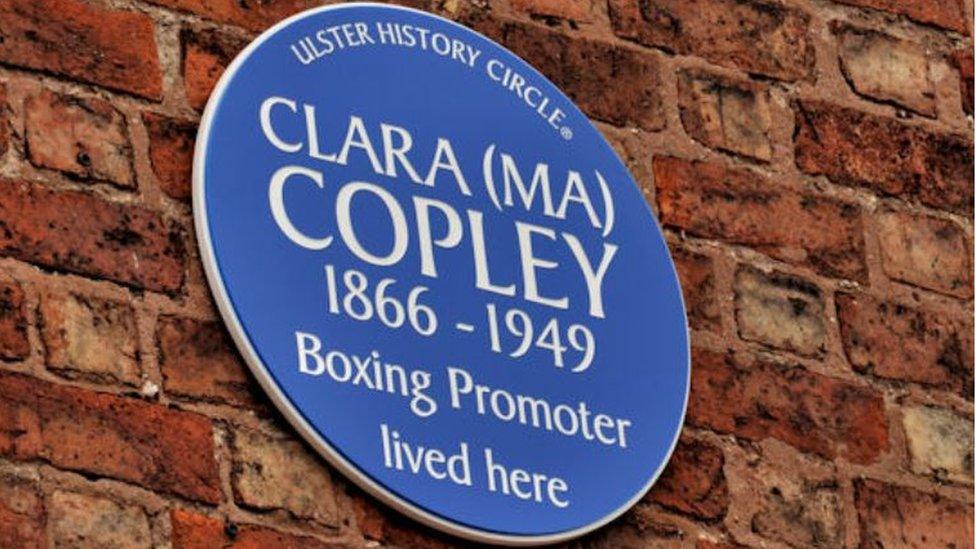
This plaque honouring Ma Copley was unveiled in 2012 at her old home in Donegall Pass (image courtesy of the Ulster History Circle)
In 1942, an event was held at the Ulster Hall to honour her, the person "who for years had had the distinction of being Britain's only woman British Boxing Board of Control (BBBC) licensed promoter".
A silver fruit bowl was presented to her with the inscription: "By the Patrons of the Ulster Hall as a token of appreciation of services rendered to the sport of boxing."
When Ma stopped living in her caravan she moved to a house in Donegall Pass, where she lived until her death in 1949. In 2012 a blue plaque honouring her was unveiled there by the Ulster History Circle.
While Ma Copley's name will forever be attached to Belfast's rich boxing heritage, for Doreen Devenney it is happy times spent with her grandmother that she remembers the most.
"When she retired from the boxing I used to visit her on Saturday evenings and play cards with her - we would play for pennies. Then I would make her and my grandfather their supper. She was great fun."
Discover more local historical figures in the BBC Bitesize series: History Makers.
Related topics
- Published20 August 2015
